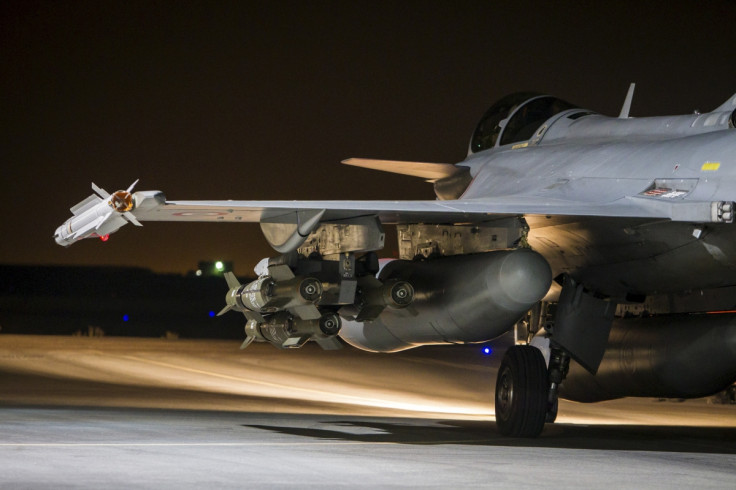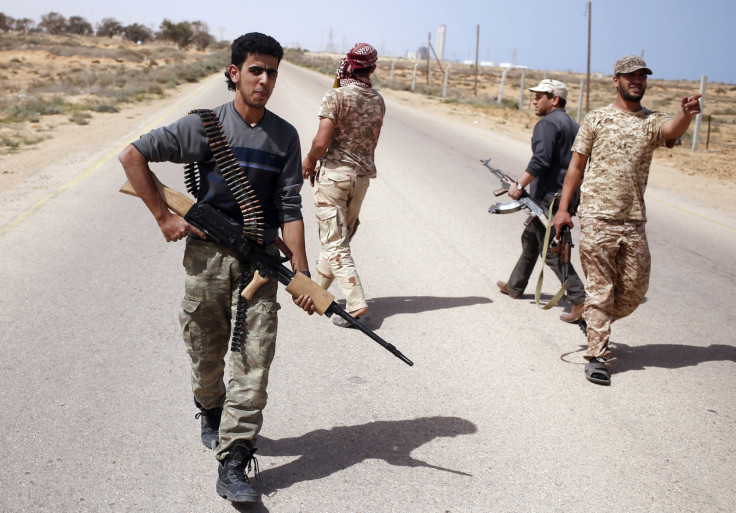Libya's Raqqa: Is Isis Sirte stronghold the next target for coalition air strikes?

As international support for the air strikes against Islamic State (Isis) grows, the gaze of the coalition has fallen to the shores of the Mediterranean and IS's (Daesh's) most powerful outpost beyond its power base in the Levant, the Libyan coastal city of Sirte.
French presidential documents show French aircraft flew reconnaissance and intelligence gathering missions over Islamic State positions in Libya on 20 and 21 November over Sirte and the government-held town of Tobruk. Reuters reported further "intelligence, surveillance and reconnaissance flights are also planned".
Italy, which sits just over 300 miles away from Libya, is becoming increasingly concerned by the IS threat on its doorstep. The country's foreign minster, Paolo Gentiloni, has announced an international summit in Rome to discuss the militant group's expansion in Libya. He is also on record as saying the next international emergency will emanate from the North African state. Italy has confirmed the attendance of the US and Russian foreign ministers John Kerry and Sergei Lavrov at the summit.
There have also been other indications the coalition is looking to Libya, which the UN has said currently hosts 3,000 IS fighters, 1,500 of them in Sirte. The group's leadership is almost entirely foreign to Libya, hailing from Saudi Arabia, Yemen and elsewhere in the region and tied personally to IS's self-declared Caliph, Abu Bakr al-Baghdadi.
The Times reported US and UK special forces had been deployed on the ground in Libya to gather intelligence on the group and its so-called 'Tripoli Province'. In November the Pentagon announced US air strikes had killed IS's leader in Libya, Iraqi Abu Nabil Al-Anbari, a former officer in the Iraqi army who played a key role in IS's victories in Beiji and Tikrit.

Nato, which intervened during the country's 2011 liberation war against Muammar Gaddafi, has ruled out a similar intervention for the time being, but the treaty organisation's secretary general Jens Stoltenberg has said it needs to be ready to address challenges to the east as well as the south.
The origins of IS's grip on Sirte, essentially a colonial outpost managed by a foreign administration and a carbon copy of Raqqa or Mosul in Syria and Iraq, can be explained by the fate of the town in the immediate aftermath of the 2011 revolution.
The former Gaddafi heartland was the last to fall to rebel forces and as such had no local militia to provide its security. While the myriad local militias that sprang out of the Libyan revolution have torn the country apart, the absence of one in Sirte left it vulnerable to IS.
Mohamed Eljarh, nonresident fellow for the Atlantic Council, told IBTimes UK: "Sirte was viewed a Gaddafi loyalist stronghold, it was the last city to fall in Libya. As a result Sirte never had its own militia to secure it or its own armed group. Initially its security was divided between two armed groups."
One of the two armed groups, the Furqan Brigade, had an extremist element that would later pledge allegiance to IS. However the militants did not take full control of Sirte until they were ejected from Derna to the east by a local insurrection. It was then that fighters who had previously fought in Syria – Libyans and foreigners – would come to Sirte.

The offshoot of IS in Libya took complete control of the central Libyan city of Sirte when, at the end of May, the group captured the city's civilian airport, pushing out forces loyal to Libya's Tripoli-based government. IS in Libya's influence around Sirte extends some 150km to the east, along the coastal road to the town of Nawfliyah.
In August IS successfully put down a local insurrection in Sirte and established their unassailable dominance over the town. Crucially, they do not rule with consent in the town. "When the people were being crushed and crucified in Sirte no one intervened from the Libyan factions to help them out. People in Sirte are now accepting IS because they have no other options but to live under them and abide by whatever rules and policies they have," Eljarh explained.
IS in Libya sustains itself, as it does in Iraq and Syria, through bank robberies and the extortion of local residents. However it also makes money from the country's lucrative migrant trade. There are also indications that many of the militants still receive salaries from the Libyan government in Tripoli, which continues to pay militias, as it did in the aftermath of the revolution.
© Copyright IBTimes 2025. All rights reserved.






















